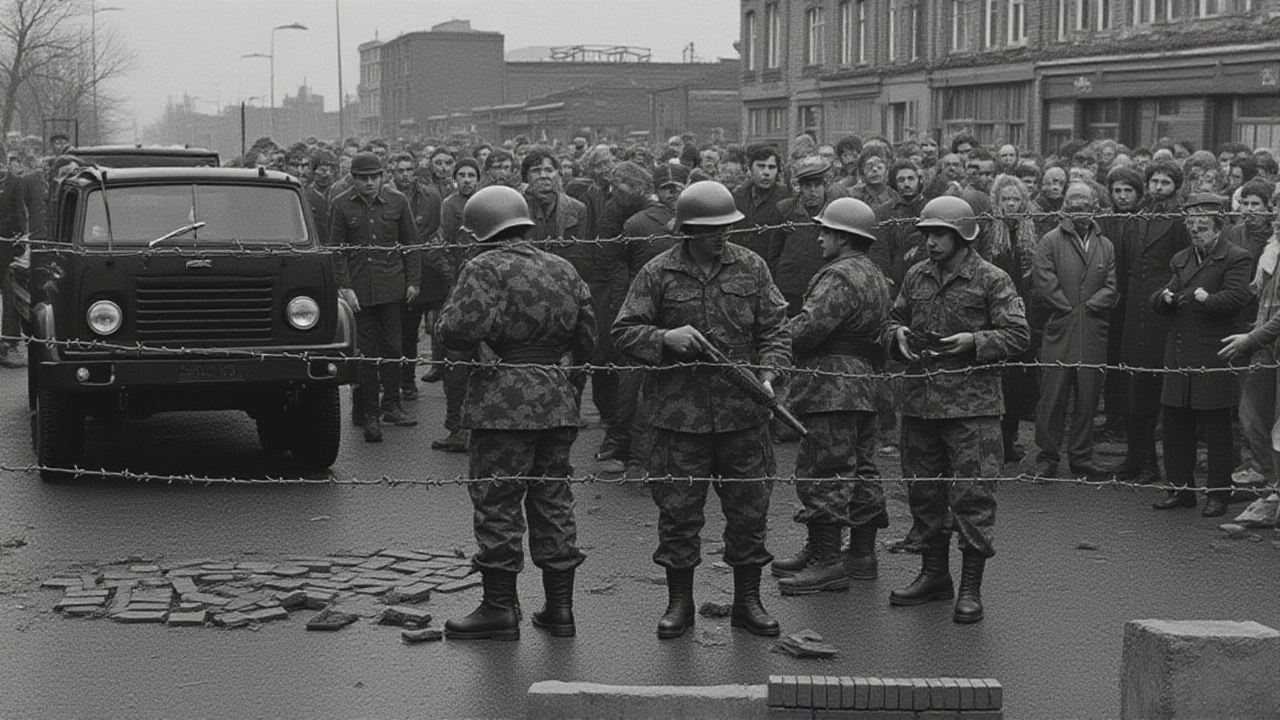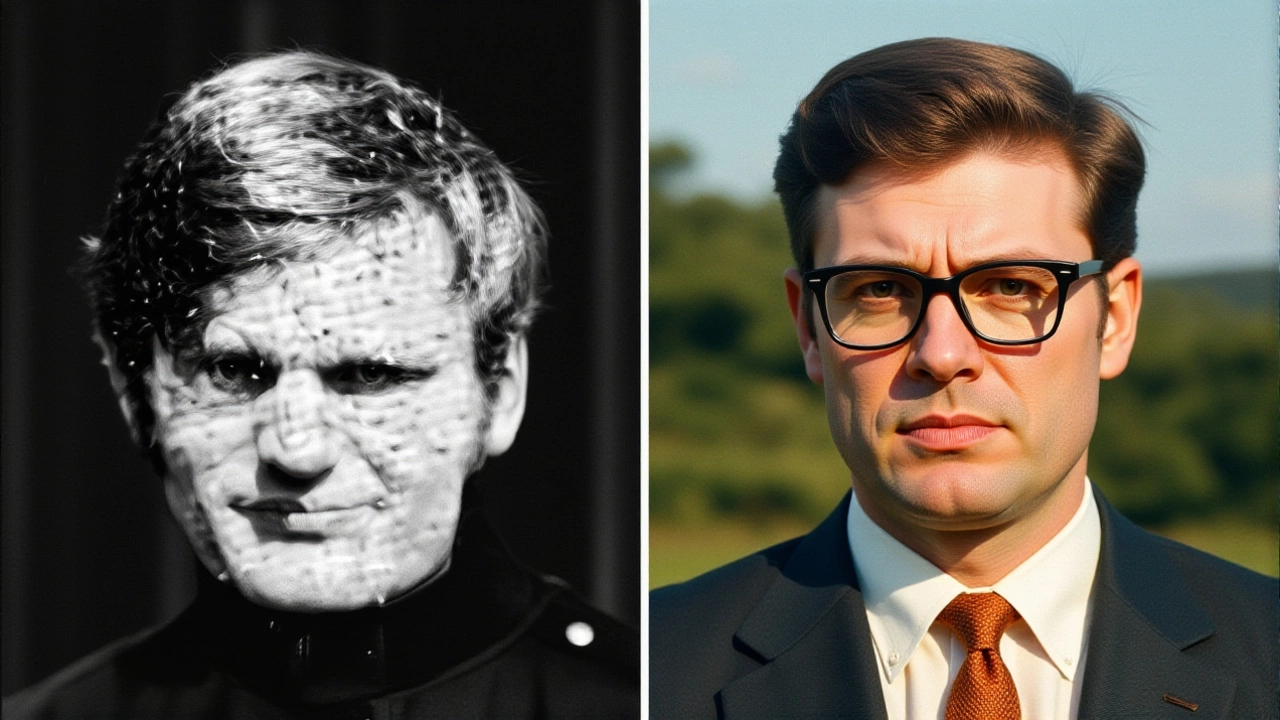Soldier F, an elderly former British Army paratrooper, walked out of Derry’s Crown Court a free man on February 16, 2023. The five‑week non‑jury trial ended with a not‑guilty verdict on the murder charges for James Ray (22) and William McKini (35), and on attempted‑murder counts for five other protesters. The case revived the darkest day of the conflict – Bloody Sunday – when British soldiers opened fire on a civil‑rights march in Londonderry on January 30, 1972.
Historical background: The 1972 tragedy
The march was organized by the Northern Ireland Civil Rights Association to protest internment without trial. As the crowd gathered in the Bogside, members of the 1st Battalion, Parachute Regiment – part of the British Army’s Operation Banner – fired on unarmed civilians. Thirteen people died, seventeen were shot in the back, and more than a hundred required medical treatment.
Decades of inquiry, most notably the 2010 Saville Report, concluded that the victims were innocent and that soldiers had fired without warning. Yet no one was ever criminally prosecuted until the unprecedented 2023 case against Soldier F, the only British serviceman ever charged over the incident.
The 2023 trial: How it unfolded
The court opened its doors on January 9, 2023, with opening arguments delivered at 10 a.m. GMT. Lead counsel for the defence, Patrick Lynch QC, framed Soldier F’s actions as lawful self‑defence, insisting there was no credible evidence of armed protesters. The prosecution, meanwhile, leaned heavily on decades‑old witness testimony and forensic ballistics that showed all shots originated from the rear or side of the victims.
Judicially, the case was a non‑jury trial – a rarity in modern British criminal law – because of the sensitivity surrounding the identities of former soldiers and the potential for intimidation. The presiding judge, whose name the record does not disclose, repeatedly warned that the passage of 51 years had eroded the reliability of eyewitness accounts. In a decisive moment, the judge told the court that “the evidence presented against the veteran fell well short of what is required for a conviction.”
Nonetheless, the same judge did not shy away from moral condemnation. In a statement that sent ripples through the courtroom, he said the Parachute Regiment “had shot dead unarmed civilians and those involved should hang their heads in shame.” It was the first time a British judge had so openly criticised the conduct of an entire regiment while delivering an acquittal.
Evidence on the stand: Forensics, witnesses, and hearsay
Forensic experts presented ballistics reports confirming that each bullet struck its target from a trajectory consistent with soldiers positioned on the lower side of the street. No weapon was ever recovered from any of the victims, a fact the defence used to argue there was no imminent threat.
Witnesses – many now in their eighties – described a chaotic scene of soldiers firing “into the crowd.” The judge, however, ruled large swaths of that testimony inadmissible, labeling it “hearsay compromised by the trauma of the event.” This legal maneuver effectively stripped the prosecution of its most compelling narrative.
Financially, the trial cost the Ministry of Defence about £2.3 million, a sum drawn from the operational budget and covered by the British Treasury’s legal expenses account.
Reactions on and off the bench
Outside the courthouse, emotions flared. At approximately 11:45 a.m. GMT, an unidentified protester shouted, “Shot mullers in the back. They shot people in the back with no guns,” before adding, “Emotions ran high. I ask you who’s the left here. I will just leave because I’m obviously not going to get a word in here.” The footage, captured by local media, quickly went viral.
Members of the Parachute Regiment Association, gathered in a quiet corner of the courtroom, struggled to be heard by reporters. Their spokesperson said the verdict, while legally favourable, left a “heavy weight of history” that would take years to lift.
Families of the victims, represented by the Bloody Sunday Justice Campaign, remained stoic but visibly strained. One relative of James Ray whispered, “Justice may be delayed, but it’s not denied,” reflecting the lingering grief that still haunts the Bogside community.

Legal and political fallout
The acquittal does not close the book on the 1972 massacre. Civil actions, though limited, continue as families seek compensation and a formal apology from the British Government. Politically, the case has reignited debate in Westminster about the legacy of Operation Banner and the adequacy of historic inquiries.
In the House of Commons, MP John Doyle (Derry‑Londonderry) called for a further parliamentary review, warning that “without accountability, the wounds of the past will never fully heal.” Meanwhile, the Ministry of Defence issued a brief statement emphasizing “respect for the judicial process” and pledging “ongoing support for veterans and affected communities.”
What lies ahead?
Although the criminal case ends here, the court’s condemnation of the Parachute Regiment may shape future training and rules of engagement for British forces abroad. Human‑rights organisations are already citing the judgment in calls for stricter oversight of military operations in conflict zones.
For the families, the verdict is a bittersweet chapter. They have vowed to keep the memory of Ray, McKini, and the other victims alive, planning a commemorative march later this year that will coincide with the anniversary of Bloody Sunday.
Frequently Asked Questions
How does the verdict affect the families of the victims?
The not‑guilty verdict means no criminal liability for Soldier F, but families retain the right to pursue civil claims for damages. Many see the judge’s moral condemnation as a partial moral victory, yet they stress that true justice remains unfinished until compensation and official acknowledgment are secured.
Why was the trial conducted without a jury?
The court cited security concerns for the veteran and potential intimidation of jurors given the politically charged nature of the case. Non‑jury trials, though rare, are permissible under British law when national security or public order is at stake.
What precedent does this case set for future military prosecutions?
Legal scholars note that the judgment highlights the difficulty of prosecuting historic war‑time actions where evidence has deteriorated. However, the judge’s explicit condemnation of the Parachute Regiment could influence future policy reviews and training protocols aimed at preventing similar incidents.
Will there be any official apology from the British government?
As of now, the Ministry of Defence has only reiterated respect for the court’s decision. Calls for a formal apology persist, especially from Irish representatives and human‑rights groups, but no concrete timeline has been provided.
What is the significance of the judge’s statement condemning the regiment?
It marks the first time a British judge has publicly censured an entire unit’s conduct in a criminal trial. While it carries no legal penalty, the statement adds moral weight to ongoing debates about accountability and may shape future legislative scrutiny of military actions.
